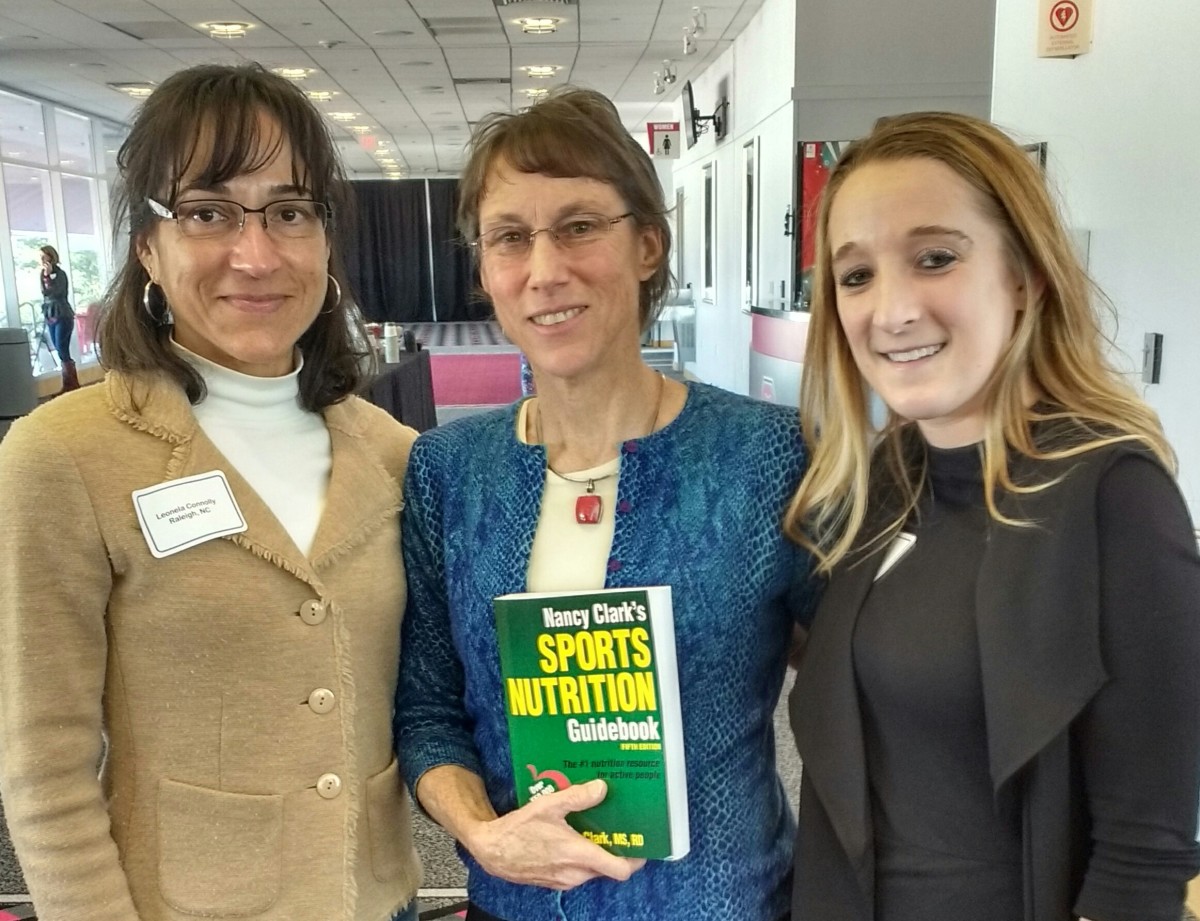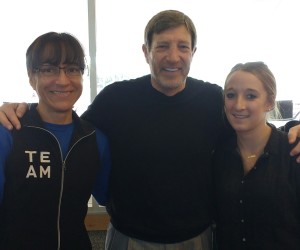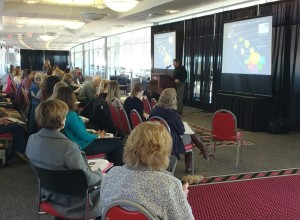The Pros Talk About Sports Nutrition
By Leonela, who is pursuing her MS in Nutrition from Meredith College and is part of our TEAM
Sarah and I spent a day and a half at the Nutrition for Sports, Exercise & Weight Management workshop hosted by Nancy Clark, MS, RD and John Ivy, PhD. Nancy and John together have over 50 years of experience with and vast knowledge of nutrition and exercise physiology. It was a pleasure to hear them talk and I only wish that I could spend more time with them to absorb just a tiny bit of their knowledge base.
This was a two day workshop. The first day was all about exercise physiology, nutrition and the business of nutrition.
As John said, if you plan to work with athletes, you MUST understand exercise physiology or you will have no credibility with regard to providing nutrition information or advice to athletes. John talked at length about the principles of exercise training including specificity, progressive overload, recovery, overtraining, disuse and individuality. He spent a good bit of time explaining VO2 and lactate thresholds, both of which are critical to individualized training for endurance athletes.
He also talked about nutrition timing, focusing on fueling for recovery. John shared several research study results showing that eating both carbs and protein within one hour after a workout is an effective way to increase protein synthesis and reduce protein degradation, that is, to repair muscles. It easy to forget that recovery, muscle repair, is a very important part of training!
Nancy talked about the importance of carbs as fuel for training. However, as Nancy herself stated, “it’s a conversation”, meaning that adequate carb consumption is totally dependent on an individual’s current state and goals which are different for everyone. Nancy, and the workshop participants, also had advice on how to succeed at the business of nutrition. Her two main messages were 1) find your niche, and 2) be creative about everything including finding office space, making yourself known, setting fees and getting clients to come back.
The second day included presentations on the physiological effects of aging and weight loss. John shared studies showing the declining effect of aging on muscle fitness, cardiovascular endurance and other physiological functions. For example, aerobic power (VO2 max) decreases 1% per year after age 25. Muscle mass decreases by about 40% from age 20-70 with 6% decline per decade from age 30-70. Muscle strength decreases about 8% per decade after age 50. Rates of decline have much to do with the lack of physical activity enjoyed by older adults. Less than 5% of adults participate in 30 minutes of physical activity each day. Yet, John shared several studies that showed that physical activity along with proper nutrition can reduce the rate of decline of aerobic capacity, muscle mass and physiological fitness. For example, 12 weeks of resistance exercise training has been shown to increase extensor and flexor muscle strength in individuals aged 60-72.1
Nancy provided a few key messages regarding weight loss. She reiterated that no diet is superior to any other diet. Calorie deficit is what matters. Effective weight loss includes eating fewer calories, being more active and changing your lifestyle to make it easier to eat less and move more. She also reminded us of the importance of getting enough good sleep. Nancy spoke about eating mindfully and intuitively so as to avoid intense hunger which is often what leads to cravings for sweets, making unhealthy choices and overeating. One of her consistent messages was to eat on a schedule that includes eating at least every 4 hours in order to avoid dramatic shifts in levels of hunger throughout the day. I think that is an excellent message!
Overall, this was a great investment of our time. John and Nancy shared quite a bit of useful information that is relevant for everyone, not just elite athletes. Sarah and I both learned a lot and had an opportunity to meet others that share our interest in Sports Nutrition. We definitely recommend the workshop for sports nutritionist, personal trainers and anyone else who is interested in helping any kind of athlete!
1Frontera, WR, et al. J Appl Physiol 64:1038-1044, 1988.






